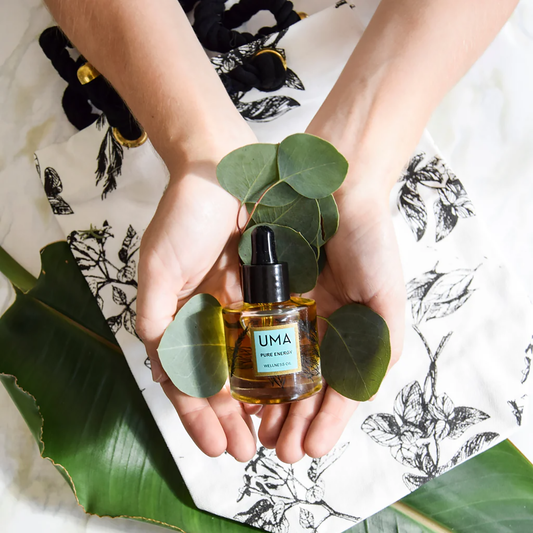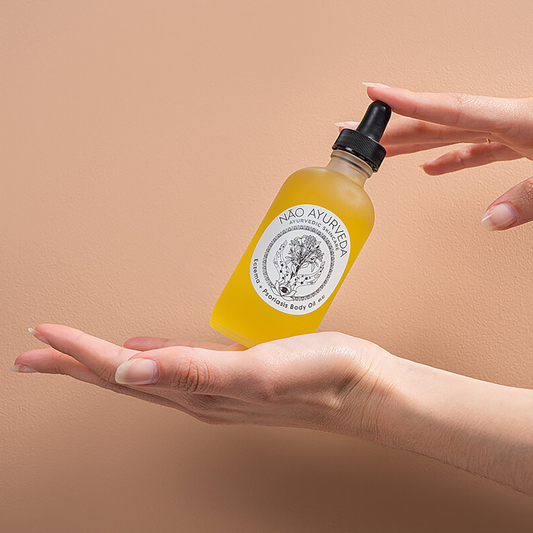Abhyanga
NOURISHMENT FOR THE BODY
Abhyanga is more than just a massage; it’s a sacred ritual that delivers nourishment to both skin and spirit. The exquisite blend of natural oils infused with traditional herbs harmonizes the body’s energy, restoring balance and vitality with each soothing stroke.
ENHANCED CIRCULATION
Embracing the practice of Abhyanga can help foster a gentle stimulation of circulation, helping to promote the flow of prana, or life force. This invigorating process can help awaken the senses, leaving you feeling refreshed and rejuvenated, ready to embrace your day with renewed energy.
MIND-BODY CONNECTION
Integrating Abhyanga into your self-care routine nurtures a deeper connection with yourself. The mindful application of oils cultivates a sense of presence, helping for introspection and relaxation, which are essential for holistic well-being.
SELF-CARE RITUAL
Making Abhyanga a daily habit transforms your self-care regime into a sacred ritual filled with intention and love. As you indulge in this practice, you celebrate the beauty of mindful living, aligning your body, mind, and spirit in perfect harmony.
Frequently Asked Questions
What is Abhyanga?
Abhyanga is a traditional Ayurvedic practice of self-massage with warmed herbal oils that promotes relaxation, balance, and vitality. This nurturing ritual helps to harmonize the body and mind, enhancing overall well-being.
How often should I perform Abhyanga?
It is generally beneficial to practice Abhyanga daily or a few times a week, especially in the morning, to support grounding and rejuvenation. Tailor the frequency to your individual constitution and lifestyle for optimal results.
What types of oils are best for Abhyanga?
The choice of oil can depend on your dosha and personal preferences. Generally, sesame oil is warming and suitable for Vata types, while coconut oil offers a cooling effect, ideal for Pitta, and sunflower oil can be grounding for Kapha.
Do I need to warm the oil before using it?
Warming the oil enhances its soothing properties and allows for a deeper penetration into the skin. A gentle heat can help to relax muscles and promote a more effective self-massage experience. However, it isn't required.
Can Abhyanga be performed at any time of the day?
Although morning is ideal for many, Abhyanga can be practiced at any time that feels right for you. Listen to your body and choose a time that aligns with your rhythm and needs.
What other practices can complement Abhyanga?
To enhance the benefits of Abhyanga, consider incorporating practices such as yoga, meditation, or herbal teas to promote relaxation and balance. Integrating these holistic approaches can create a harmonious self-care routine.
What should I do after completing an Abhyanga session?
After your Abhyanga session, allow the oil to soak into your skin for at least 20 minutes up to 2 hours. Once you’re ready, take a warm shower or bath to cleanse your skin and elevate your senses. Please be cautious, as the oil may make the tub or shower slippery. This process helps you feel refreshed while preserving the nourishing benefits of the oil.
Is Abhyanga suitable for everyone?
Abhyanga is generally considered beneficial for all, but it's important to choose the right oils and techniques based on your individual constitution. If you have specific concerns or conditions, it's wise to consult a knowledgeable practitioner for personalized guidance.




























